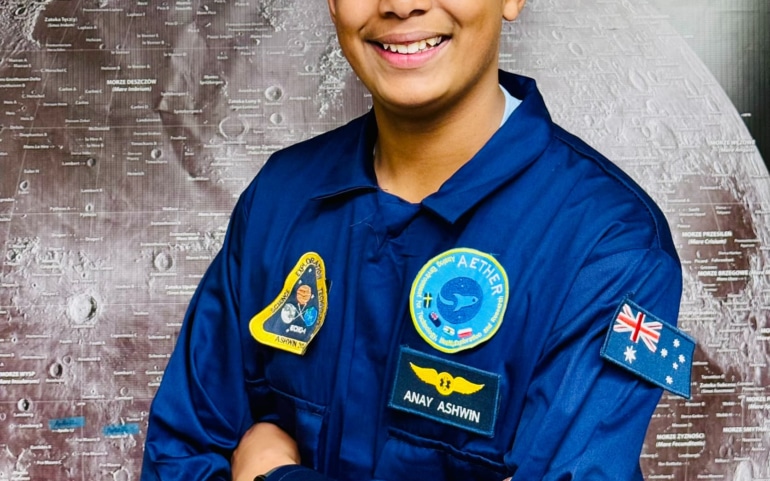2020: Conducted a study titled ‘Impact of COVID Lockdowns on Adolescent Sleep and Return-to-School Anxiety’, published in the International Young Researcher’s Journal.
2020-2023: Awarded National and International Champion title in the Future Problem Solving Competition
2023: Awarded 3rd Place in the Australian Space Agency’s Big Dipper Challenge
2024: Presented at the 75th International Astronautical Congress (IAC24), as the youngest presenter in IAC history; paper selected from 7,000 submissions across 106 countries.
Awarded 1st Place in the International Mission to Mars Engineering Design Competition
Awarded 1st Place for Best Oral Presentation (Undergraduate category) at the 23rd Australian Space Research Conference
Awarded 1st Place for Best Oral Presentation (High School Category) – International Region VII American Institute of Aeronautics and Astronautics (AIAA) Conference, Swinburne University of Technology, Australia
Presented the winning design of the Mars Mission Competition at the 27th International Mars Society Convention
Awarded 3rd Place in the Australian Space Agency’s Big Dipper Challenge; youngest to place among 200 global entries, including teams of PhDs and engineers; design was highly evaluated as part of a lunar exploration challenge under the Trailblazer project, which is part of the Agency’s Moon to Mars Initiative.
2025: Accepted as the youngest Research Fellow at the International Space Surgery Research Consortium
Enrolled as the youngest student (at 14) in the Space Sciences undergraduate Head Start program at the University of Southern Queensland, Australia
As one of the youngest researchers globally working at the intersection of space medicine, engineering, and human performance, I aspire to become a flight surgeon. I collaborate on international bioastronautics projects with university researchers and space agency–affiliated scientists, focusing on hypometabolism protocols, autonomous surgical systems, and Extended Reality (XR) technologies to support space crews’ psychological resilience. My work has been published in peer-reviewed journals, and I have presented at leading global space conferences. I have also received several national and international STEM and space awards in recognition of my contributions.
As a Masason Foundation member, I aim to expand these efforts through interdisciplinary collaboration with fellow members in human spaceflight research. My goal is to develop transformative biomedical innovations that enhance astronaut performance and safety, while also translating these solutions to benefit healthcare on Earth.
